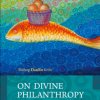Radivoje Zhivadinovich and Milka Radoicich Zhivadinovich Trust
The Episcopal Council of the Serbian Orthodox Church received a major estate gift in 2006 from the Zhivadinovich Estate for the education of men and women in the fields of Chemistry or Chemical Engineering.The interest is to provide scholarships for students from former Yugoslavia with a bachelor degree or equivalent to study engineering or chemistry in this country.
Only students born in the former Yugoslavia who are age 23 or younger who are accepted for graduate study at a U.S. College or University in the fields of Chemistry or Chemical Engineering are eligible for a scholarship.
Monies are available from earnings generated by the Zivadinovich Trust. The Serbian Church in North and South America was asked to manage this fund, strictly according to provisions of the Trust agreement.
Many scholarship were awarded in the last years.
The Committee of the Zivadinovich Scholarship consists of: His Grace Bishop Maxim, Ron Radakovich and Stevan Davidovich.
Each year, the Committee submits a report on the Fund.




